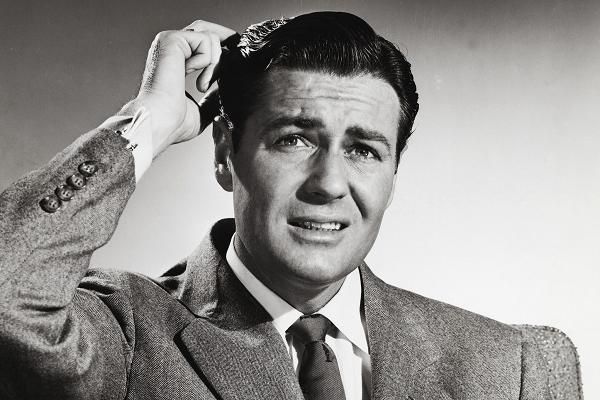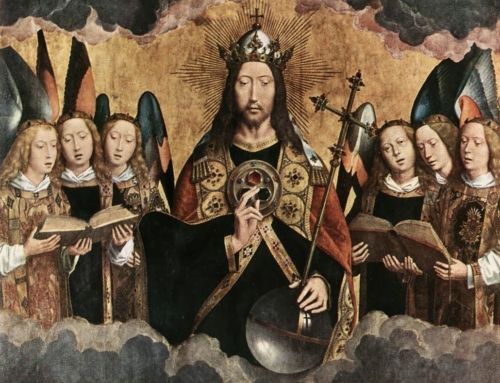The bellicose Hilaire Belloc wrote,“All arguments are theological arguments.” So it is with the social situation in the United States. It is easy to think that the country is divided between those who pay taxes and those who receive benefits–those who take responsibility for themselves and those who do not.
It is easy to blame those who are on benefits for being lazy, irresponsible and ‘entitled’. It is easy for those who are working and paying taxes to become self righteous and blame the benefit collecting poor. But beneath the politics and economics–beneath the class warfare and mutual resentment there is always a belief system at work.
Consciously or unconsciously people believe certain things about themselves, about society, about God and about their ultimate destiny, and these beliefs affect their decisions and actions. Consequently, religion may have more to do with politics and economics than we first thought.
A person’s belief system is the deep down way they look at the world. Their belief system is not necessarily what they think they believe. It’s their beliefs that motivate them and really determine their decisions and actions. When we speak of belief systems we’re talking about what a person believes whether he knows it or not. When I was doing some prison work in England I asked the guys what they believed. I said everyone has a belief system. One fellow spoke out, “I don’t believe in anything.” I nodded and said, “Then that’s your belief system. You don’t believe there are belief systems, you don’t believe there’s anything to believe in, and that in itself is a belief system called Nihilism.”
The problem of the two nations–those who earn and pay taxes and those who receive benefits and feel entitled–is that there are two underlying belief systems. One is that of personal responsibility. The second does not believe that personal responsibility is possible. The choice between these two world views is determined by many different factors, but at the foundational level the belief is a theological belief, and that belief determines the way a person behaves.
Christianity–and especially the Catholic expression of it–is the one belief system that fully endorses personal responsibility. All other religions and expressions of Christianity are, to a greater or lesser extent, either fatalistic or freewheeling. Religions like Islam and Calvinism so extol the providence of God that they negate or denigrate personal freedom. Religions like Hinduism and evolutionary atheism are ultimately fatalistic–your future is decided by your karma, by your genes, or by the chthonic forces of evolution. In all these belief system options there is a kind of fatalism.
What will be will be. You can’t really do anything about it.
Fatalism on the one hand, freewheeling on the other. The religions that push God to the margins like Buddhism and Deism grant man freedom, but remove the consequences of a God who judges them. God is uninvolved. He is a distant deity–a force without a face. Man can pretty much do as he likes, and the only consequences are built in to the choices. This, of course, means that might makes right, for the strong will ensure that the consequences of their actions bring benefits. The point is that there is no external judgement or objective external justice. Similarly, Atheism denies the afterlife, so there is also no judgement and no ultimate reward or punishment–therefore the sense of personal responsibility is deflated. You may do as you like. There is no hell to pay or heaven to win. With the first set of belief systems you don’t really have much choice. Your choice is pre determined in one way or another. In the second set of belief systems you have choice–but there are no real consequences so it doesn’t matter what you do.
Catholicism, on the other hand, insists that each individual has personal freedom. Free will is God’s gift of a little bit of his omnipotence to each one of us. We can do what we want. However, there are consequences. Each decision; each action has not only a consequence, but an eternal consequence. There is Hell to pay and Heaven to win. What you decide and what you do matters–not only to you as an individual, but to everyone else. Your decisions and actions reverberate throughout society and throughout eternity. This is because, while God has given you free will he is also the just and merciful judge. By all means do what you will, but be prepared to accept the consequences–for both good and ill.
This belief elevates man like no other religion. It is through this theological belief that Western man has made all the progress in every area of life that he has. When a man really believes that he can change things and really believes there is an ultimate just reward he is empowered to make positive and lasting choices for change. A genuine belief in personal choice and ultimate consequences is therefore the foundation for personal responsibility. It is only within a truly and fully Catholic world view that real personal responsibility can flourish.
I am speaking theoretically and theologically.
I realize that in real life it is not so black and white. There are many complex reasons for individuals to lack personal drive, personal responsibility and the ability to take control of their lives. Many of those reasons are greater than the control they exercise at a given time. I realize that there are many who are truly needy and who wish to take personal responsibility, but life and it’s sorrows have caught up with them, and society and it’s injustices are weighing them down.
However, in saying this, there are significant numbers in our society on both sides of the socio-economic spectrum who do not live with a sense of personal responsibility. It is so easy to blame the scroungers and welfare cheats and deadbeats for being dependent and not taking responsibility for themselves, but let us not forget the fat cat financiers who commit legal fraud, the wealthy stock brokers who bankrupt a whole country for their own gain, the super rich scam artists who make millions out of conning other people. Let’s not forget the international corporate bankers and demagogues who wheel and deal in smoky back rooms manipulating politicians and world events–starting wars and bringing the poor to their knees. These are not the fatalists, but the freewheelers– people who function with no sense of personal responsibility. They think they will get away with it. They believe they will not have to pay for their crimes.
Their lack of personal awareness and personal responsibility for themselves and others is far worse than the layabout who refuses to work and will not or cannot get a job. Their criminal lack of responsibility is, as the Church teaches, a sin that cries to heaven for vengeance.
There are then, two sides to the question of religion and responsibility: the ability to act freely and the reality of final judgement on our actions. When both aspects are fully affirmed mankind can be truly free and truly responsible, and where individuals are truly free and truly responsible a nation can prosper.







Yes, Father, you are exactly right. However, I feel that there is a tendency to “deify” the poor and “demonize” the wealthy and middle class. In my experience, the poor are not necessarily more virtuous than the wealthy or middle class. In fact, they are often among the most depraved people in society – the most prone to gross immorality, criminal behavior and violence. It has been said that the poor are likely to be more faithful than others because they know how dependent they are on God. Well, I am not so sure – I have often found the poor to be extremely jaded and angry at God.
Admittedly, they may have less culpability because they lacked the advantages of the wealthy, but I think there has been a real tendency to imply that “poor” people are “good” and “rich” people are evil, ispo facto. I read recently where a Blessed Frederic Ozanam (founder of the Society of St. Vincent de Paul) said of the poor: “…we should fall at their feet and say with the Apostle, Tu est Dominus et Deus meus (You are my Lord and my God!).” Well, no, I think that would be idolatry – giving worship to a creature rather than to the creator. The poor and the rich alike are creatures, all beloved by God, and sinners needing redemption.
One thing that has really been bothering me lately is that more and more Church leaders are asserting that God and his Church are “on the side of the poor” and therefore “against the wealthy.” This breeds division and resentment. I think it can foment the capital sin of envy and violation of the 10th Commandment (thou shalt not covet thy neighbor’s goods).
This is a wonderful and succinct summation of our political and religious economy!